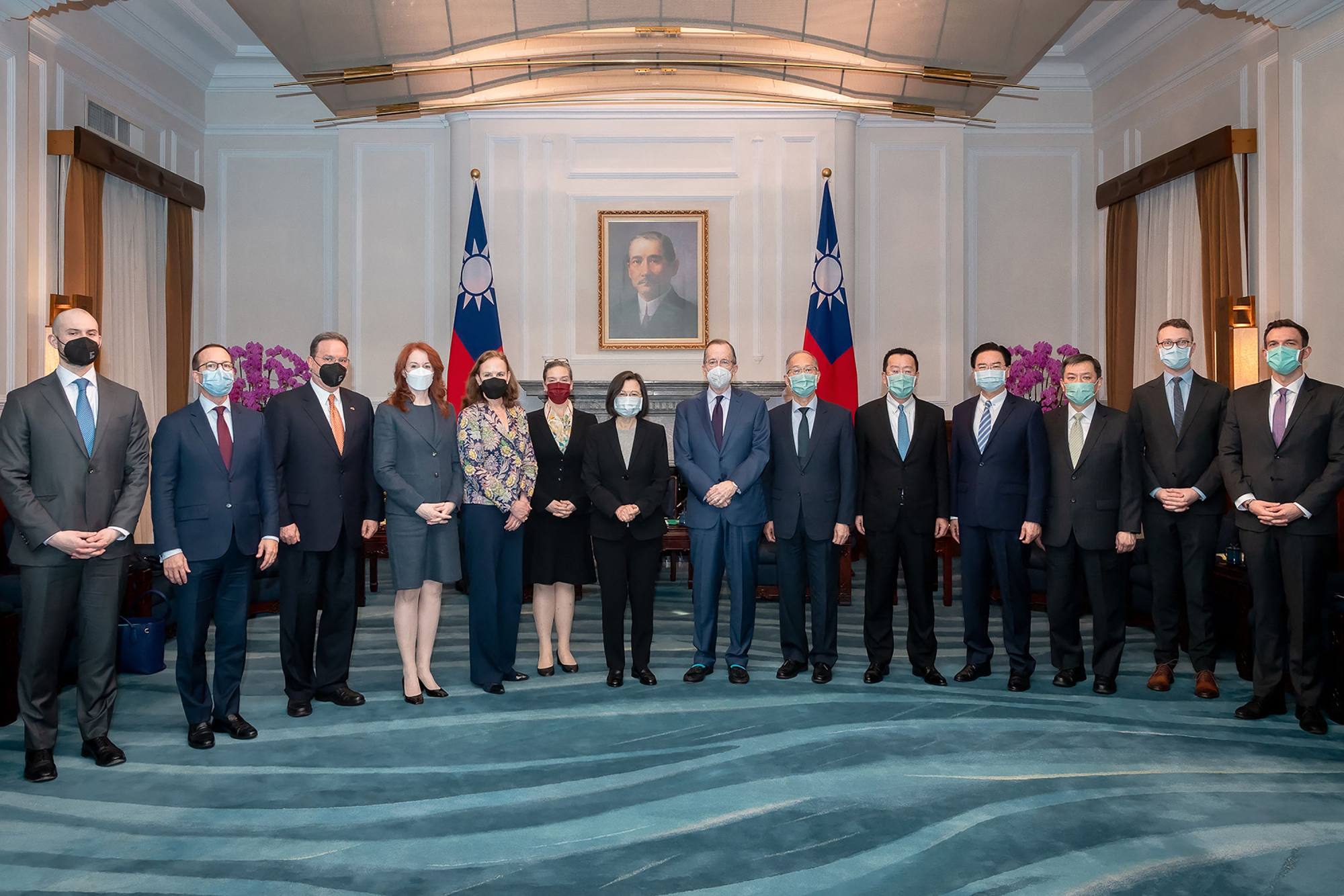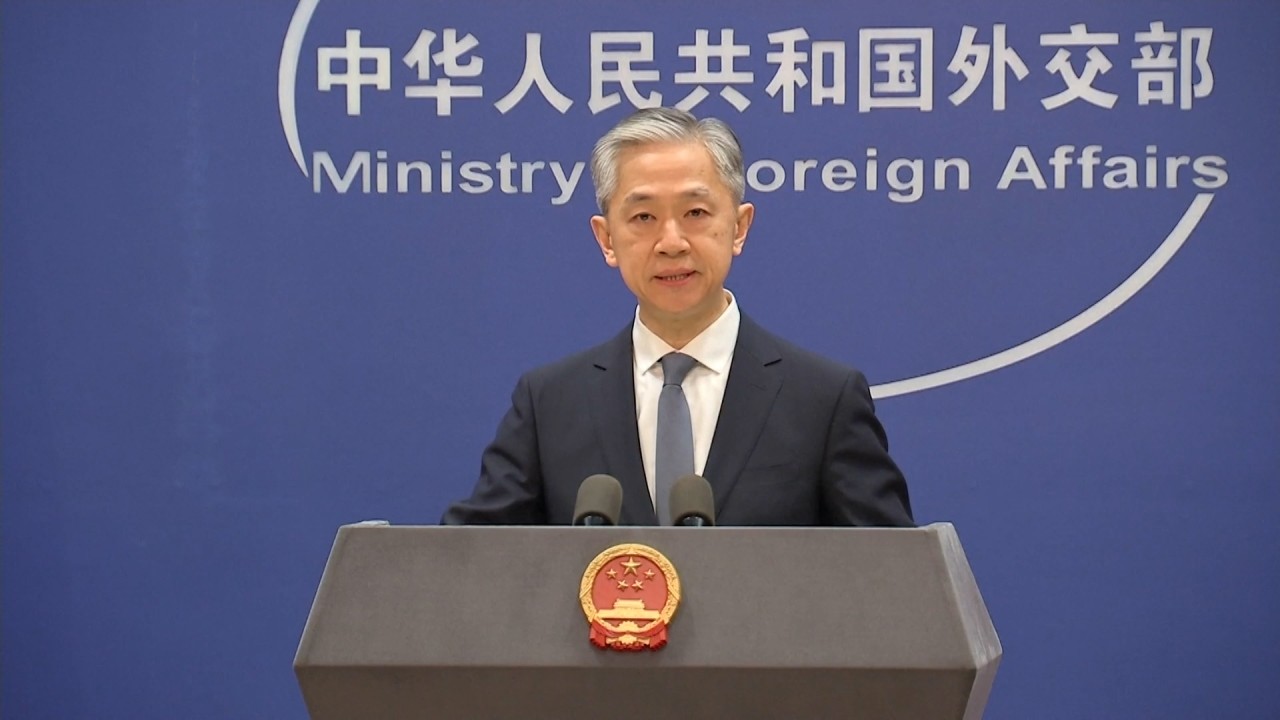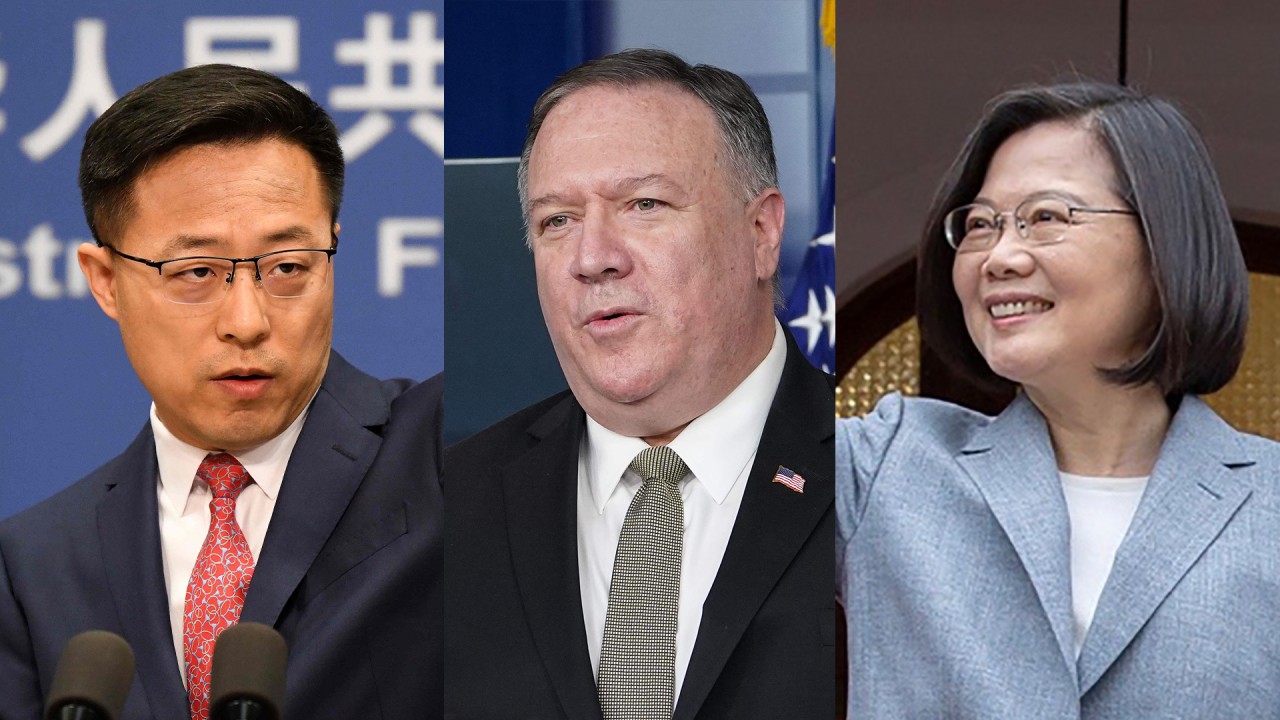
Biden delegation assures Taiwan that US stands firm on security commitment on eve of Pompeo visit
- Visit by former top US officials viewed as a pre-emptive diplomatic measure before the outspoken Trump-era secretary of state arrives
- Tsai Ing-wen tells visitors Beijing’s threats continued to rise, whether by cognitive warfare, disinformation or diplomatic means
The group said that maintaining the cross-strait status quo and peaceful resolution of disputes between Taiwan and the mainland were not just in the interest of the United States, but were beneficial to the whole world.
Pompeo, who is popular in Taiwan, might convey views that please Taiwan while undermining the Biden government’s Indo-Pacific strategy.
In a meeting with President Tsai Ing-wen at her office on Wednesday, Mullen said: “The United States will continue to oppose any unilateral changes to the status quo and will continue to support a peaceful resolution of cross-strait issues, consistent with the wishes and best interests of the people of Taiwan.
“I do hope by being here with you, we can reassure you and your people, as well as our allies and partners in the region, that the United States stands firm behind its commitments,” said Mullen, who served in both the George W Bush and Barack Obama administrations.
‘US signals resolve on Indo-Pacific, Taiwan’ despite Ukraine war
Also in the delegation were former undersecretary of defence for policy Michèle Flournoy, former White House deputy national security adviser Meghan O’Sullivan and Michael Green and Evan Medeiros, who both served as special assistants to the president and senior director for Asian affairs at the National Security Council.
There were debates in Taiwan over whether the US would remain hands-off in the event of a cross-strait conflict, given the US administration’s decision not to send troops to fight in Ukraine. There has also been public concern that Beijing might use the opportunity to attack the island.
Beijing, which views Taiwan as part of its territory, has vowed to bring it under control, by force if necessary. It has stepped up military intimidation against the island by sending warplanes and staging war games nearby to disrupt the island.

Tsai told the visiting delegation that Beijing’s military threats to the Taiwan Strait and the region continued to rise, “whether by working to limit Taiwan’s international participation or by using cognitive warfare tactics and disinformation to divide Taiwanese society and the role of democracy”.
The delegation later met Vice-President William Lai, Premier Su Tseng-chang and Defence Minister Chiu Kuo-cheng.
The group, which arrived in Taiwan on a US government plane on Tuesday for a 30-hour visit, was expected to leave on Wednesday, a couple of hours after Pompeo and his wife were due on the island for a four-day visit.
Taiwan’s foreign ministry said there would be no interaction between Pompeo and the group because of their different schedules.
Pompeo is expected to meet Tsai and visit legislative speaker Yu Shyi-kun and Foreign Minister Joseph Wu. He will also give a speech at the Prospect Foundation, a government-funded think tank.
In a statement on February 21, Taiwan’s foreign ministry described Pompeo as “a long-time and staunch friend of Taiwan who made outstanding contributions to promoting Taiwan-US relations during his time in office”.
Pompeo, who is known for his anti-China stand, is one of the island’s favourite US politicians.
While he was not visiting Taiwan in any official capacity, he can say whatever he wants during his stay, including highly inflammatory remarks that could provoke Beijing or comments that contradict the Biden government’s interests, said Lin Ying-yu, an adjunct assistant professor of Asia-Pacific affairs at National Sun Yat-sen University in Taiwan.
“The Biden government might want to discuss and coordinate with Taiwan certain principles involving ongoing and future interactions with Taiwan ahead of Pompeo’s visit,” Lin said.
Li Da-jung, a professor of international relations and strategic studies at Tamkang University in Taiwan, said the delegation of former officials were in Taiwan to “accurately express the mindsets of Biden and his government” although it was hard to say whether the group’s visit was intended to ensure regional were under control for the Biden government.
“These include the latest US Indo-Pacific strategy, national defence and security and the US cross-strait position,” Li noted.



